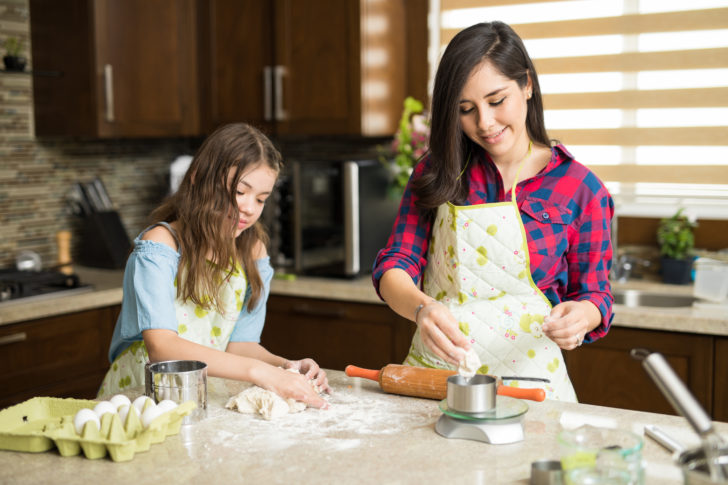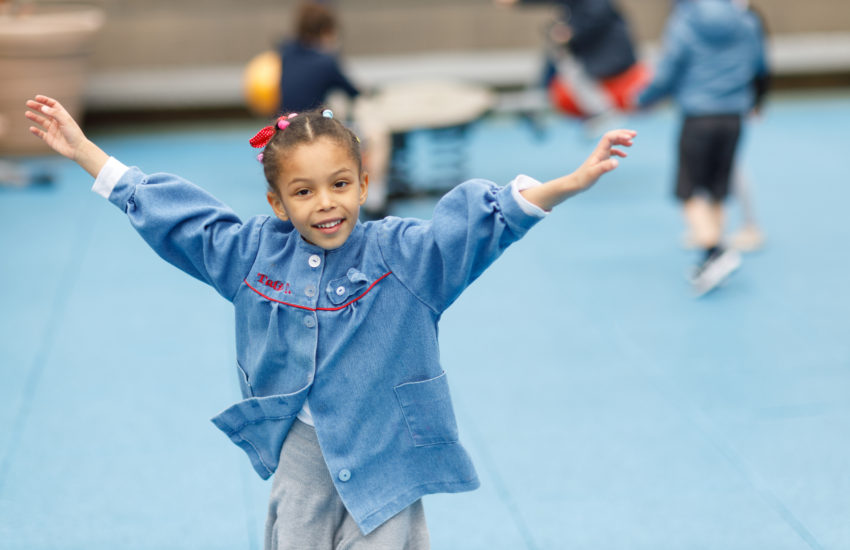When summer arrives, many parents worry about their children spending the entire summer without school work. Weeks away from school, they may fear, erase what they’ve learned from the year that has passed!
If you count yourself among those parents, does that mean you have a tutor, summer workbooks or even a work schedule for your child this summer that’s bound to create familial stress?
In reality, there are many opportunities for your children to nurture their skills and knowledge right in front you! Here are just a few summer activity alternatives to keep your child “in the flow,” while allowing you all to take advantage of a summer free from strict schedules or from the small crises that may arise when traditional summer schoolwork is too disconnected from the classroom.
Get organized. It’s magic!
Got closets to clean out or cubbards to arrange? Knowing how to arrange objects, assess usability and attention to detail are important skills: we’re clearer and learn better in an environment that is organized. We develop cognitive and organizational skills when we structure our physical environment.
 Think about it. For our youngest children, organizing means creating categories, levels of importance and order. The sheer act of organizing something teaches how to structure thinking, which, in turn, develops vocabulary, helps understand the function of particular objects in a category, for example, and even supports autonomous decision-making.
Think about it. For our youngest children, organizing means creating categories, levels of importance and order. The sheer act of organizing something teaches how to structure thinking, which, in turn, develops vocabulary, helps understand the function of particular objects in a category, for example, and even supports autonomous decision-making.
We often find these similar cognitive benefits with both preadolescents and adolescents, as organizing helps children learn to plan and to reason, essential skills for better school success–for example, learning how to organize ideas in an essay or to structure a scientific experiment.
So, while you’re on vacation, if you have a garage, a barn, or even a room to arrange; papers to organize; or clothes to recycle, do not hesitate to have your children help you. (Sorry, students….)
Share in day-to-day activities and chores
Almost all of our daily chores provide an opportunity for children to connect with what they learned in school: shopping, gardening and cooking, for example, all require scientific, mathematical and language skills.

Reading is used to follow a recipe or an instruction manual; gardening requires scientific and geographic concepts, as well as research and planning. Cooking, shopping and basic handiwork tap math concepts like proportionality, for example, when you have to adapt a recipe from one measuring system to another, or for a larger group. Your child will need to use concepts like area if you’re painting a wall, or mass, if you’re weighing tomatoes.
Go analog when you play together
Board games are an excellent alternative to screens. On the next rainy afernoon, why not take out cards or checkers or Monopoly or Pictionary. These games create family moments, and they reinfore cognitive function like attention, perception, language, memory, movement, reasoning, analysis, strategy and memorization. And, they’re fun!

Write letters and postcards
Friends who stay in New York, take a trip to Peru, visit a grandparent or even a cousin in another borough or part of the world have an opportunity to share their experience through letter writing.
 Writing, and handwriting in particular, is educational! Small hands get to nurture their fine motor skills and exercise their grammar, along with their cursive-writing skills. Figuring out the right amount of postage, even discovering a symbol, new historical figure or event on the stamp are opportunities to learn without even trying!
Writing, and handwriting in particular, is educational! Small hands get to nurture their fine motor skills and exercise their grammar, along with their cursive-writing skills. Figuring out the right amount of postage, even discovering a symbol, new historical figure or event on the stamp are opportunities to learn without even trying!
The study of language, math and social sciences are often relinquished to the school year, but even sending a simple postcard gives children the opportunity to write about what they have seen or learned, making connections to what they might have learned at school.
The simple act of writing requires a child to look up the spelling of a word or syntax. You can ask your child to use a dictionary or grammar book to proofread their own work.
Be careful not to over scrutinize your child’s work, however, as you may block their creativity and inspiration. In modeling openness and curiosity of thinking as they write, you’ll foster your child’s interest and desire to write.
Taste, listen, learn
During the school year, cognitive function is used systematically every day. We know through the study of neuroscience that sensory engagement is essential. Our sense of smell, sound, taste, and touch are important for the development of our intellectual capacity and to help us understand the world around us.
Away from the constraints of every day, vacation is the moment to stimulate and reconnect with our senses. Activities like playing an instrument, cooking and tasting, molding clay, drawing, photography, even flower arranging, give students wonderful sensory stimulation and even help them develop new passions!
Vacation is also the best time to explore one’s emotions and to help children put words to what they are feeling: each activity from learning to swim to climbing and riding is a moment of relaxation, of conviviality, and also of awareness about what a child is thinking or feeling.

Ask your child, How do you feel? Are you proud? Happy? Are you afraid? How did you overcome your fear? Where do you feel the emotion in your body?
Try to anchor their emotions in something positive, as positive repetition helps children develop better self-esteem and confidence in themselves to start shool in the fall on the right note.
These few suggestions may seem overly simple and perhaps difficult to do with children from 3 to 14, however, if you try at least one of them, even slowly at first, you’ll be amazed by the results.
Wishing a joyful vacation to all, big and small!
Photo credits for all: Shutterstock
About the Author :
Vannina Boussouf grew up on the Mediterranean island of Corsica, where bilingualism is an integral part of identity. She studied English and Spanish at the University of Corsica, and philology and letters in Cordoba, Spain, before starting a career as an elementary teacher and administrator. Vannina relocated to the United States in 2004, where she taught at the International School in Louisiana. She joined the Lycée in 2007 to direct the Primary School, and during her tenure, she has focused on innovative teaching methods that support the development of the whole child in a bilingual setting.


